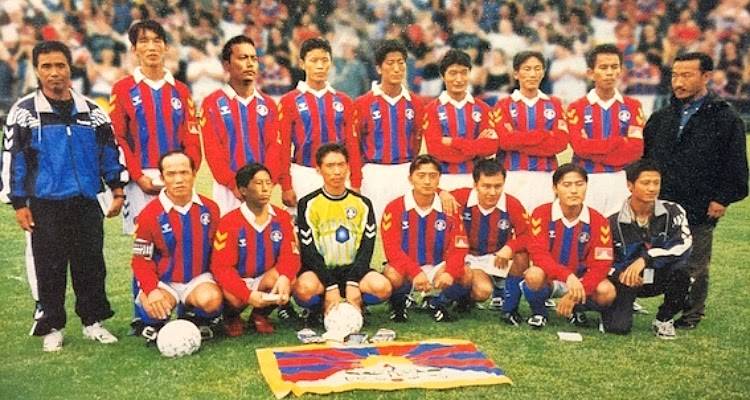
The short answer: It’s Taiwan. The name change is needed on the world stage or the petulant rich kid next door throws a tantrum and goes home.

Anyone following the Group B qualification matches for the 2022 World Cup, or looking ahead at the upcoming FIFA World Cup Asian qualifiers, may have noticed the appearance of a new nation by the name of “Chinese Taipei”.

Most people know Taipei as the capital of Taiwan, a sovereign nation that officially goes by the name of “Republic of China”, which everyone agrees makes for a badass acronym (ROC) — but the official name really doesn’t help to differentiate the island nation from the giant on the mainland known as the “People’s Republic of China” (PRC).

You probably already know the story of Taiwan. If not, you should at least be aware that Taiwan is not China, and vice versa. Actually, that’s not entirely accurate either. Let’s just gloss over all the complicated details for now and say that the government of Taiwan was once that of China, but it is effectively now in exile, much like the government of Tibet.

Unlike Tibet however, Taiwan hasn’t been swallowed up (yet). Taiwan is still a separate nation and a distinct entity of over 23 million people — thanks in part to the fact that Taiwan occupies an island that is geographically separate from China.

In contrast, most of the world is fairly comfortable saying that Tibet is a province in China, even while Tibet’s rightful government resides in India.

The obliteration of Tibetan sovereignty was fairly easy for China to do back in the 1950s. There was no internet at the time, China easily controlled the news coming out of the region, and everybody was still too shell-shocked from the Second World War to notice what was going on up in the Himalayas.

These days, events such as what unfolded in the Nangpa La pass back in 2006 can be made a matter of permanent record on YouTube — which (hopefully) compels China to continue pursuing subtler methods of getting what it wants.

Subtle methods
When the International Olympic Committee (IOC) was trying to get China involved in the Olympics back in 1979, there was a lot of pouting about what everybody would be calling Taiwan’s Olympic Committee.

Perhaps understandably, the PRC had an issue with the “National” bit. Chances are high that none of us were there at the time but it was probably a long and drawn-out discussion that culminated in what is now referred to as the Nagoya resolution. All that was needed for China to finally come on board was for Taiwan to rescind its government’s claim to rule in China, along with everything else that made them a sovereign nation, by agreeing to being called “Chinese Taipei”.
“I just can’t wait to see the athletes from British Washington and Israeli Ramallah.”
That rewriting of history just to have both China and Taiwan compete in the Olympics probably seemed natural to the IOC since the ROC was dropped from the UN and China’s seat went to the PRC in 1971. Since then, anytime Taiwan wanted to make an appearance on the world stage, they’ve somewhat gracefully let themselves be renamed.
Kevin Eichenberger is disappointed that Taiwan has been eliminated, but he is still rooting for Arabian Aden to stick it to their bigger neighbour at the 2022 FIFA World Cup.

